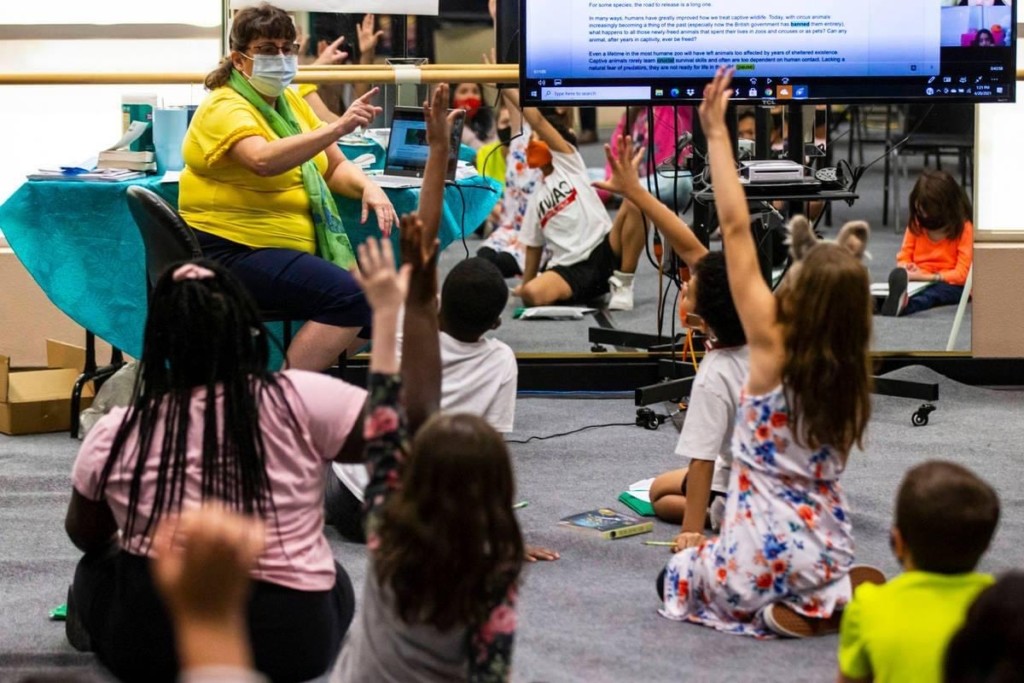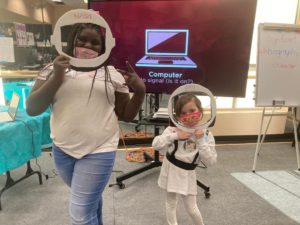
Editor’s note: This commentary is from Don Soifer, president of Nevada Action for School Options and a founding leader of the Southern Nevada Urban Micro Academy. To learn more about the academy, watch this short documentary video.
Ten miles north of the bright lights of the Las Vegas strip, one of the nation’s more powerful beacons for the future of schooling completed its first academic year in comparably stunning fashion.
The Southern Nevada Urban Micro Academy (SNUMA), the first-of-its-kind public private partnership micro-school designed to tackle pandemic learning loss, has operated in person every school day. Clark County public schools, meanwhile, operated a distance-learning program that few felt was working close to optimally.
While the most recent school year surely will prove unforgettable for any number of reasons related to hardship, challenge, and tragic loss, the experience of the nearly 100 SNUMA learners and their families were overwhelmingly positive, and in sharp contrast with most of their prior schooling experience.
North Las Vegas is one of Nevada’s poorest and fastest-growing cities. Residents and the public officials who serve them have complained for decades about being underserved by their massive school district, the fifth largest in the nation. Three out of four children who attended SNUMA last year arrived at the start of the year and six months into the pandemic at least two grade levels behind in their mastery of English language arts and math.
So, it was even more valuable when 100% of SNUMA students made at least one full year’s academic growth during the year in reading/English language arts, and 87% posted at least two years’ growth.
The results in math were comparable, if slightly muted; 92% finished the year having accomplished at least one school year’s academic growth in math, and 35% completed at least two years of academic growth.
 The most striking results came from the program’s third and fourth grades. Every one of them who attended for the full year accomplished at least two years of academic growth in English language arts. In math, all accomplished at least one full year’s academic math growth, and 75% completed at least two years of math growth.
The most striking results came from the program’s third and fourth grades. Every one of them who attended for the full year accomplished at least two years of academic growth in English language arts. In math, all accomplished at least one full year’s academic math growth, and 75% completed at least two years of math growth.
The Micro Academy doubled the size of its student population prior to the spring semester, and its midyear cohort of children followed a comparable trajectory of learning growth. All children arriving midyear achieved a full year’s growth in English, and more than half did so in math.
SNUMA’s highly structured daily schedules emphasized academics using a personalized learning model that combined strengths of world-class digital learning tools with those of a rich, in-person learning experience that embraced whole-group, small-group and one-on-one instruction from a team of “learning guides” and interventionists.
The nonprofit in charge of the school’s academics worked with an all-star team of partners to deliver its high-quality product, including grades 3-8 curriculum provider Cadence Learning, whose unique model provided professional development and support described by the micro-school’s educators as some of the best they had ever received.
The City of North Las Vegas funded the micro-schools entirely out of municipal funds, not per-pupil school funding, for its residents and for children of emergency workers serving the city. Children attended at a small cost, $2 per day, for the first semester, and entirely for free for the second semester. To attend SNUMA, all children were registered as homeschoolers.
The city contracted with nonprofit Nevada Action for School Options to provide the teaching and learning for SNUMA. The model truly is an active partnership, located in the city’s two recreation centers and a library, with free breakfast and lunch provided for all children. Small class sizes characterize SNUMA’s learning environment, and the 15-child classroom limit proved not only valuable for both pandemic safety and education reasons, but quite popular with families who had been accustomed to a school district known for large and even overcrowded classrooms.
The forward-focused city leadership, at the time all elected Democrats, wanted to serve its children well while working to get parents back to work. Offering a desirable alternative to “leaving their child home alone with a jar of peanut butter” was an early motivation.
Councilwoman Pamela Goynes-Brown, a retired educator and one of the program’s primary champions, described SNUMA as “micro-schooling to make the powerless powerful.” She worked with the micro-school’s leadership team to create a model with equitable and measurable impacts.


